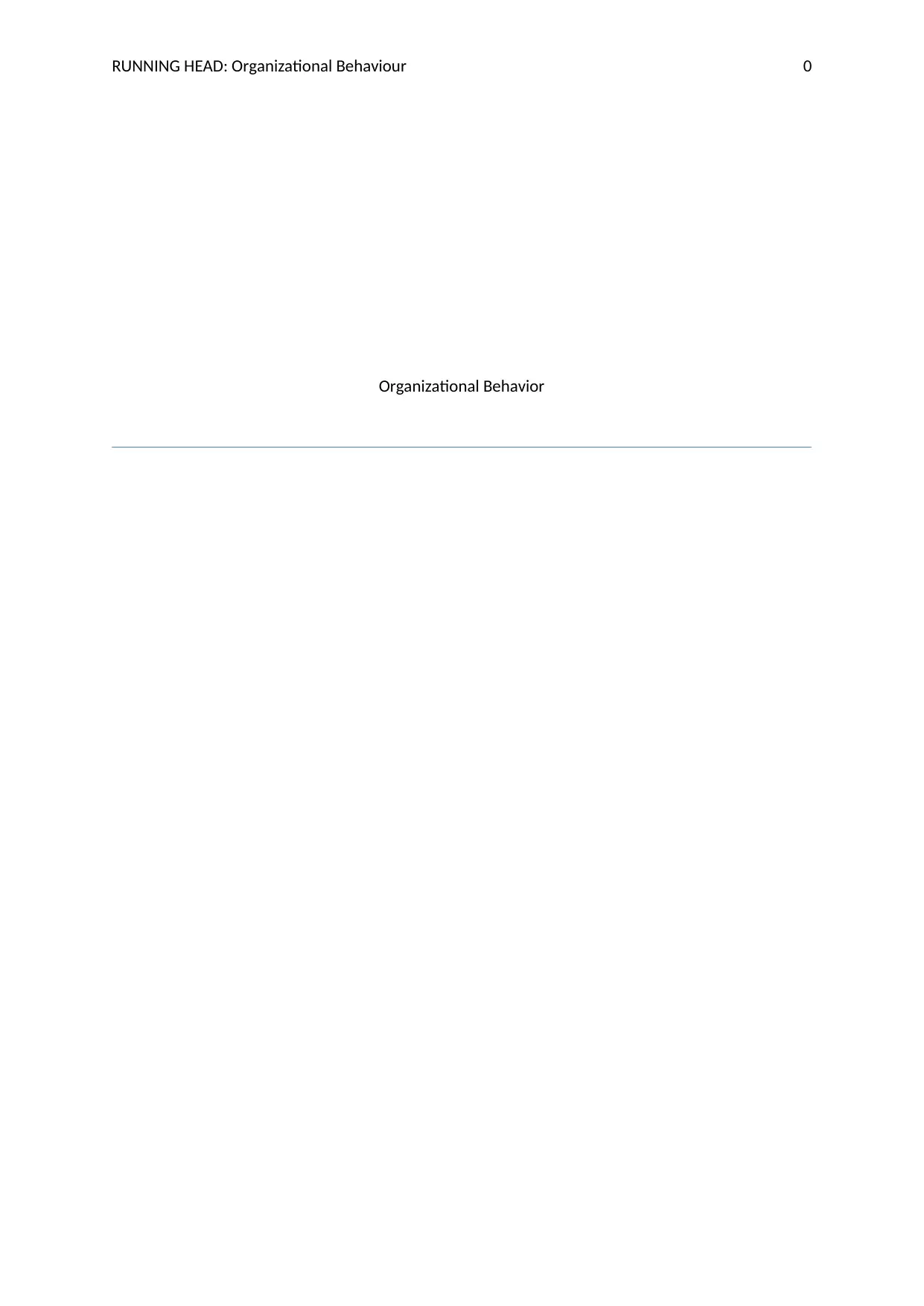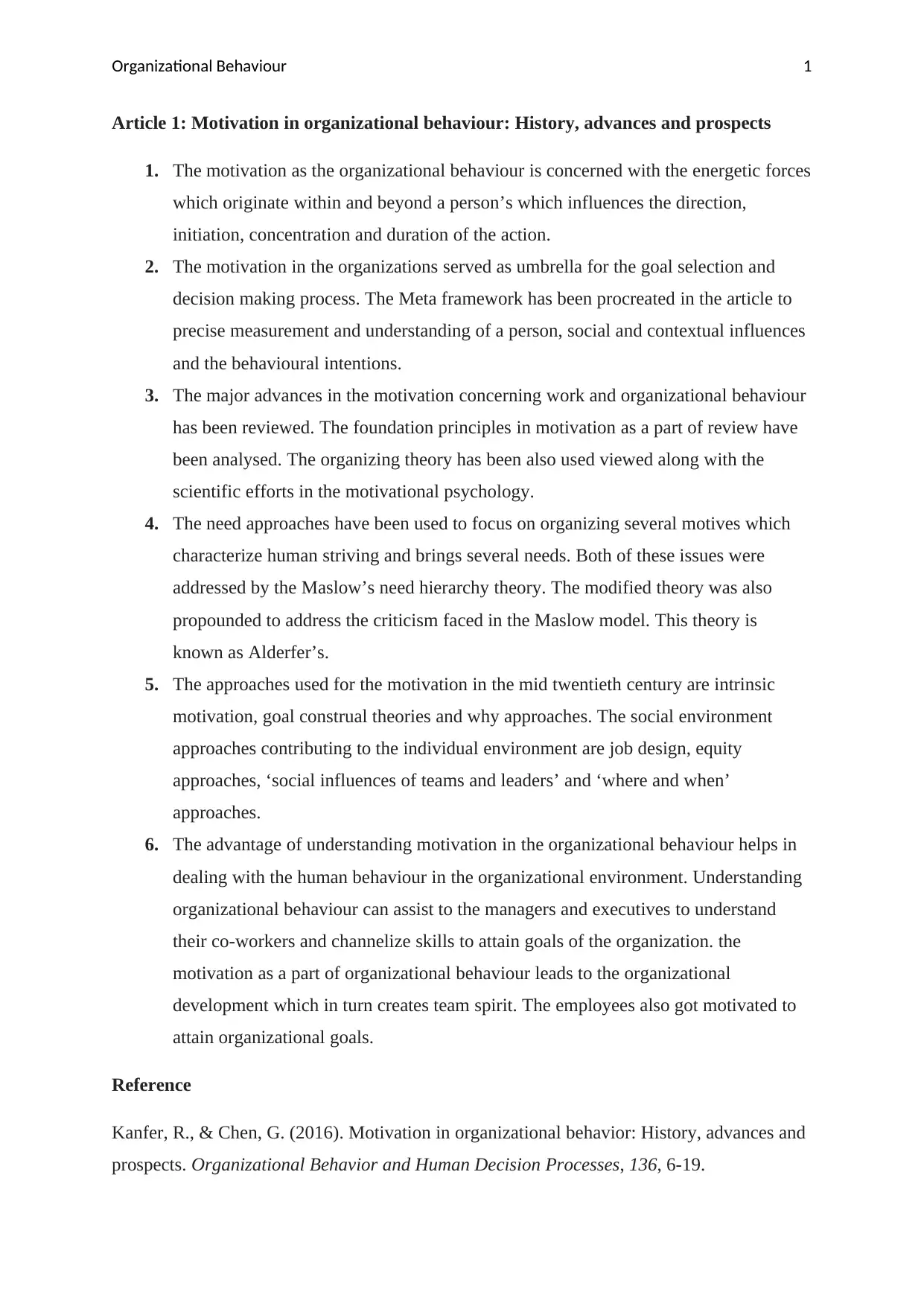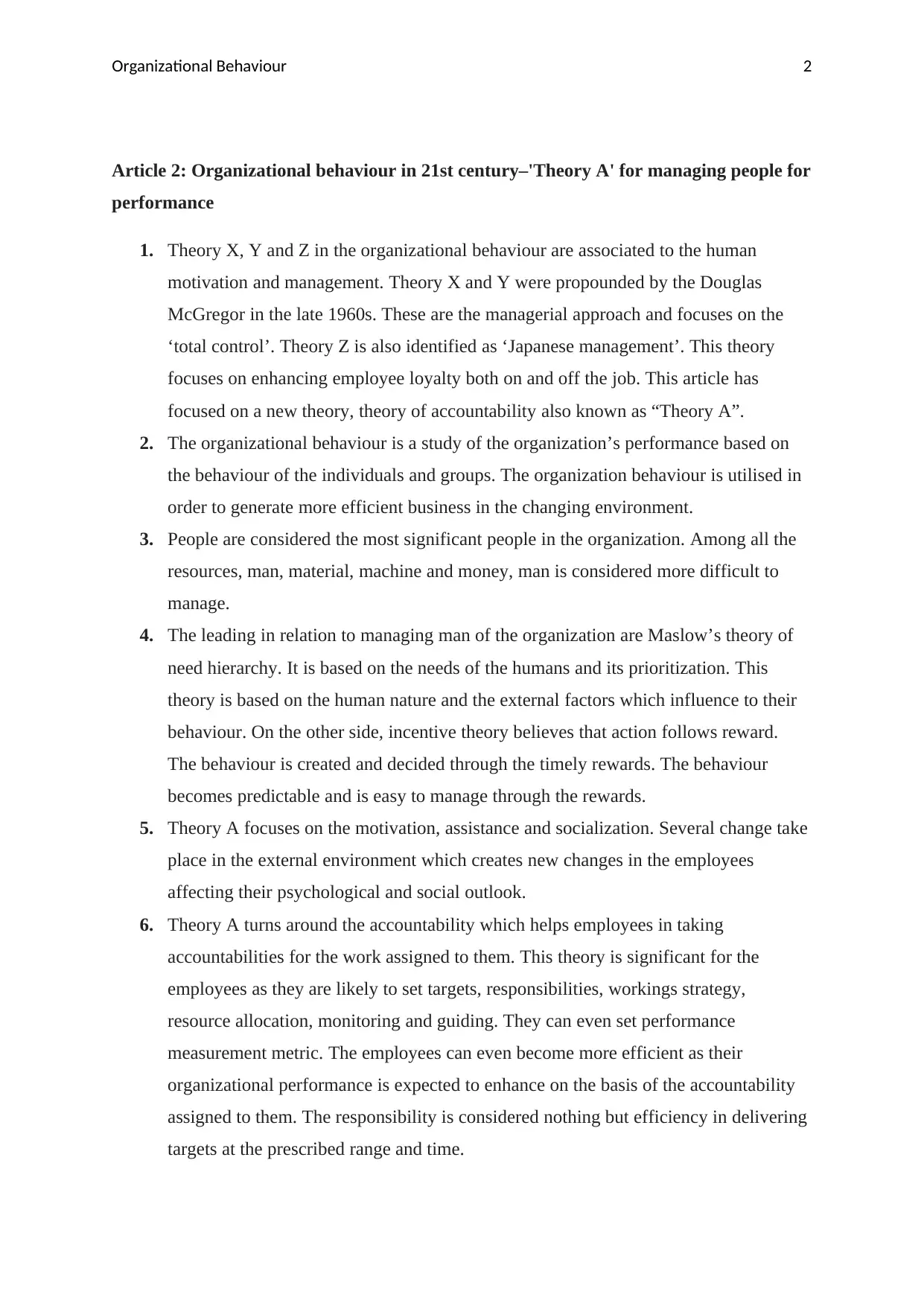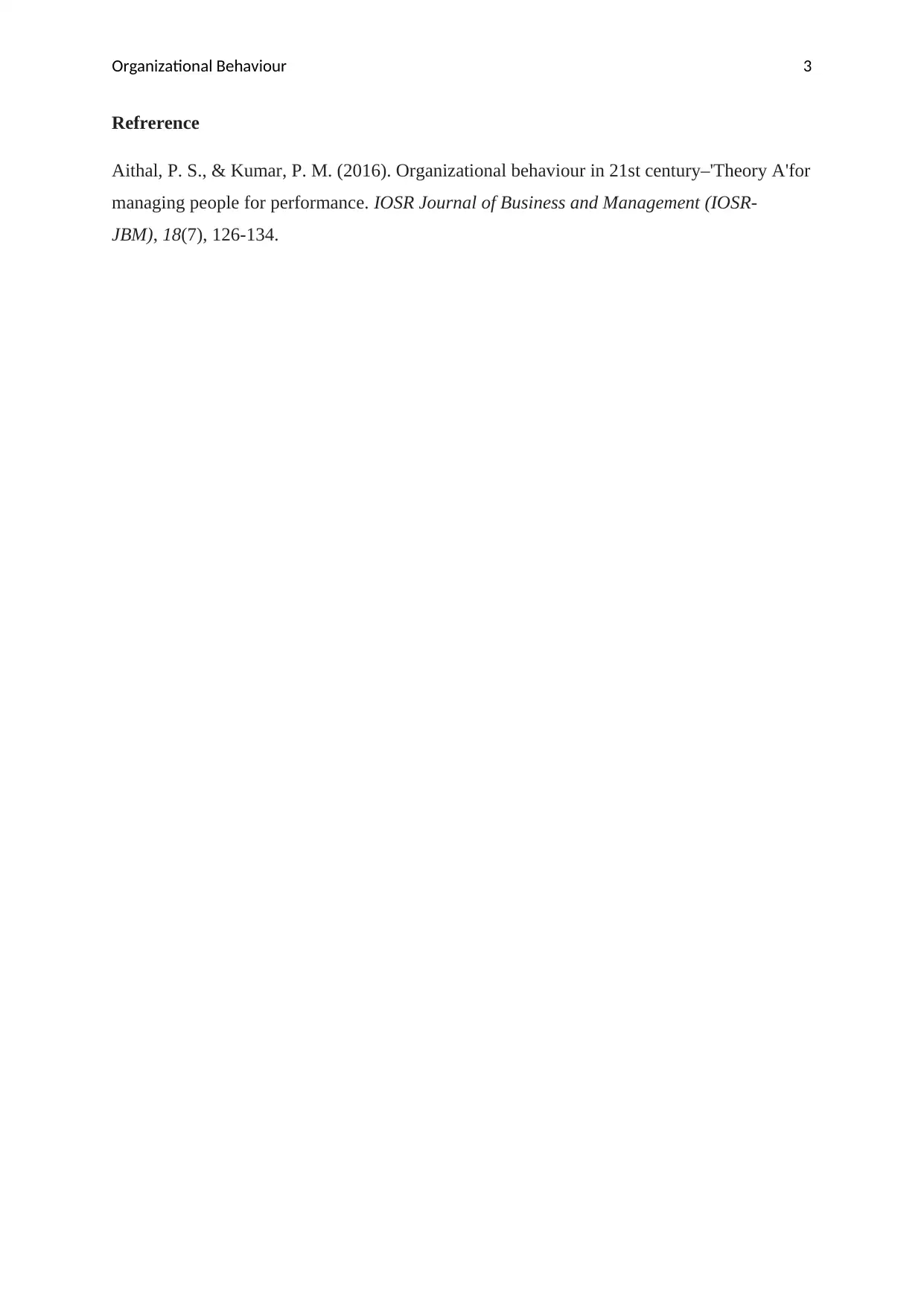Organizational Behaviour Report: Motivation, Whistleblowing Analysis
VerifiedAdded on 2022/11/14
|4
|813
|172
Report
AI Summary
This report delves into the realm of organizational behaviour, examining two key articles. The first article explores the history, advancements, and future prospects of motivation within organizations, highlighting frameworks for understanding individual, social, and contextual influences. It reviews foundational principles and various motivational approaches, including need-based theories like Maslow's and Alderfer's, as well as intrinsic motivation and social environment approaches. The second article introduces 'Theory A' as a contemporary approach to managing people for performance, contrasting it with traditional theories like X, Y, and Z. It emphasizes the importance of accountability, motivation, assistance, and socialization in fostering employee efficiency and organizational success. The report also analyzes the concept of whistleblowing within an organization, discussing potential motivations, the impact of frivolous lawsuits, ethical considerations, and the advantages and disadvantages of reporting illegal activities to both the company and external authorities. The report provides valuable insights into employee behavior and management strategies.
1 out of 4










![[object Object]](/_next/static/media/star-bottom.7253800d.svg)